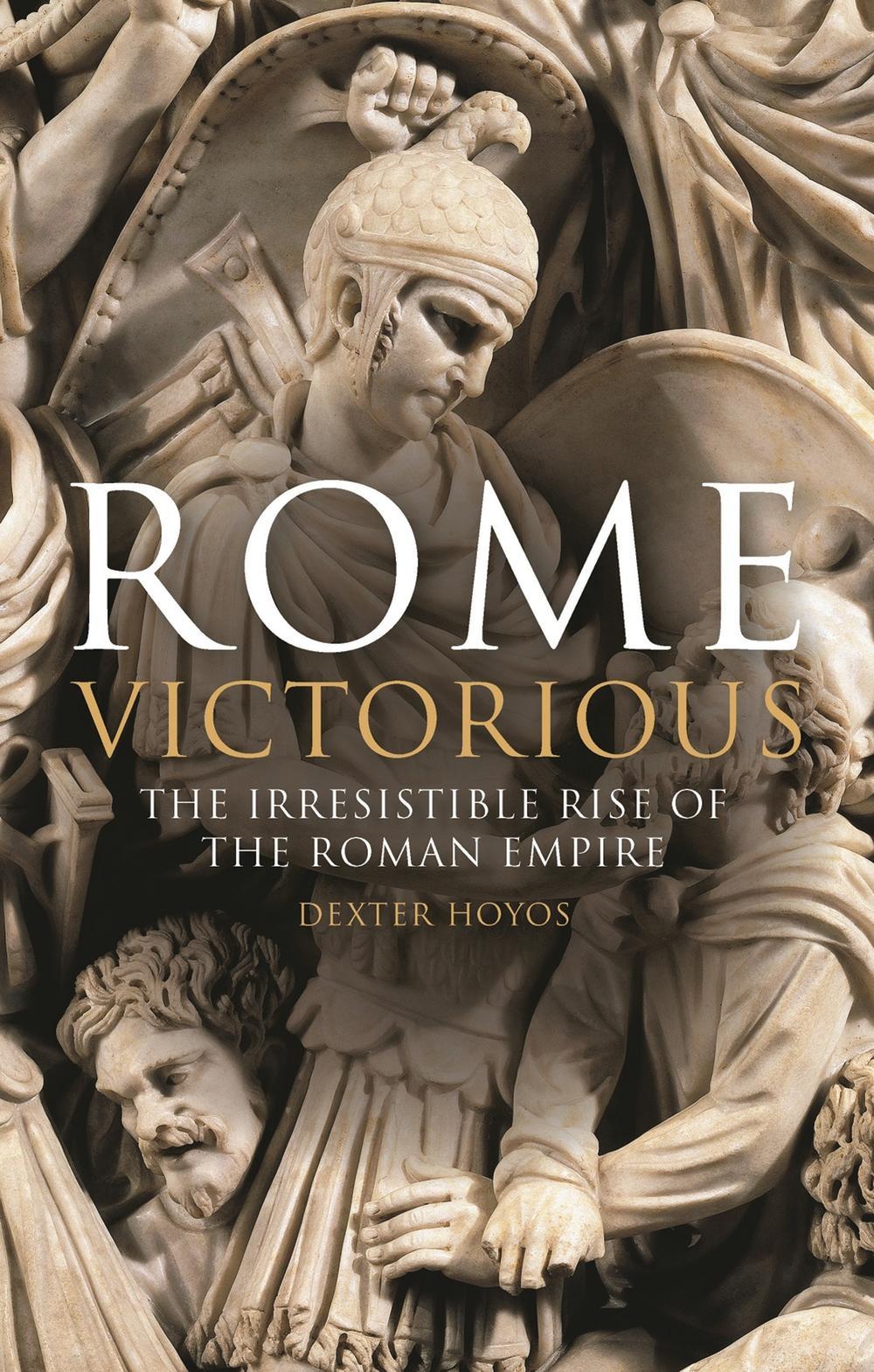Roman Imperialism

Roman Imperialism
Perhaps the most famous example in history of modest beginnings rising to greatness, Rome's empire was never static or uniform. Over the centuries, under the `boundless grandeur of the Roman peace' (as the Elder Pliny put it), imperial law, civilisation and language vigorously interacted with and influenced local cultures across western and central Europe and North Africa. Provincial subjects were made Roman citizens, generals and senators. In AD 98 Trajan became the first of many Romans from outside Italy to assume supreme power as Emperor. Poets, philosophers, historians and legalists - and many others besides - all participated in the brilliant intellectual constellation secured by the pax Romana.
However, as Dexter Hoyos reveals, the empire was not won cheaply or fast, and did not always succeed. The Carthaginian general Hannibal came close to destroying it. Arminius freed Germania by brutally annihilating three irreplaceable legions in the Teutoburg Forest - a disaster that broke Augustus' heart. And the Romans themselves, in expanding their empire, were often ruthless. Caesar boasted of killing a million enemy fighters in his Gallic Wars, while the accusation of a Caledonian lord became proverbial: they make a desert and call it peace. Yet at the same time the Romans strove to impose moral and legal principles for directing their sub
PRP: 360.00 Lei
Acesta este Prețul Recomandat de Producător. Prețul de vânzare al produsului este afișat mai jos.
324.00Lei
324.00Lei
360.00 LeiLivrare in 2-4 saptamani
Descrierea produsului
Perhaps the most famous example in history of modest beginnings rising to greatness, Rome's empire was never static or uniform. Over the centuries, under the `boundless grandeur of the Roman peace' (as the Elder Pliny put it), imperial law, civilisation and language vigorously interacted with and influenced local cultures across western and central Europe and North Africa. Provincial subjects were made Roman citizens, generals and senators. In AD 98 Trajan became the first of many Romans from outside Italy to assume supreme power as Emperor. Poets, philosophers, historians and legalists - and many others besides - all participated in the brilliant intellectual constellation secured by the pax Romana.
However, as Dexter Hoyos reveals, the empire was not won cheaply or fast, and did not always succeed. The Carthaginian general Hannibal came close to destroying it. Arminius freed Germania by brutally annihilating three irreplaceable legions in the Teutoburg Forest - a disaster that broke Augustus' heart. And the Romans themselves, in expanding their empire, were often ruthless. Caesar boasted of killing a million enemy fighters in his Gallic Wars, while the accusation of a Caledonian lord became proverbial: they make a desert and call it peace. Yet at the same time the Romans strove to impose moral and legal principles for directing their sub
Detaliile produsului










